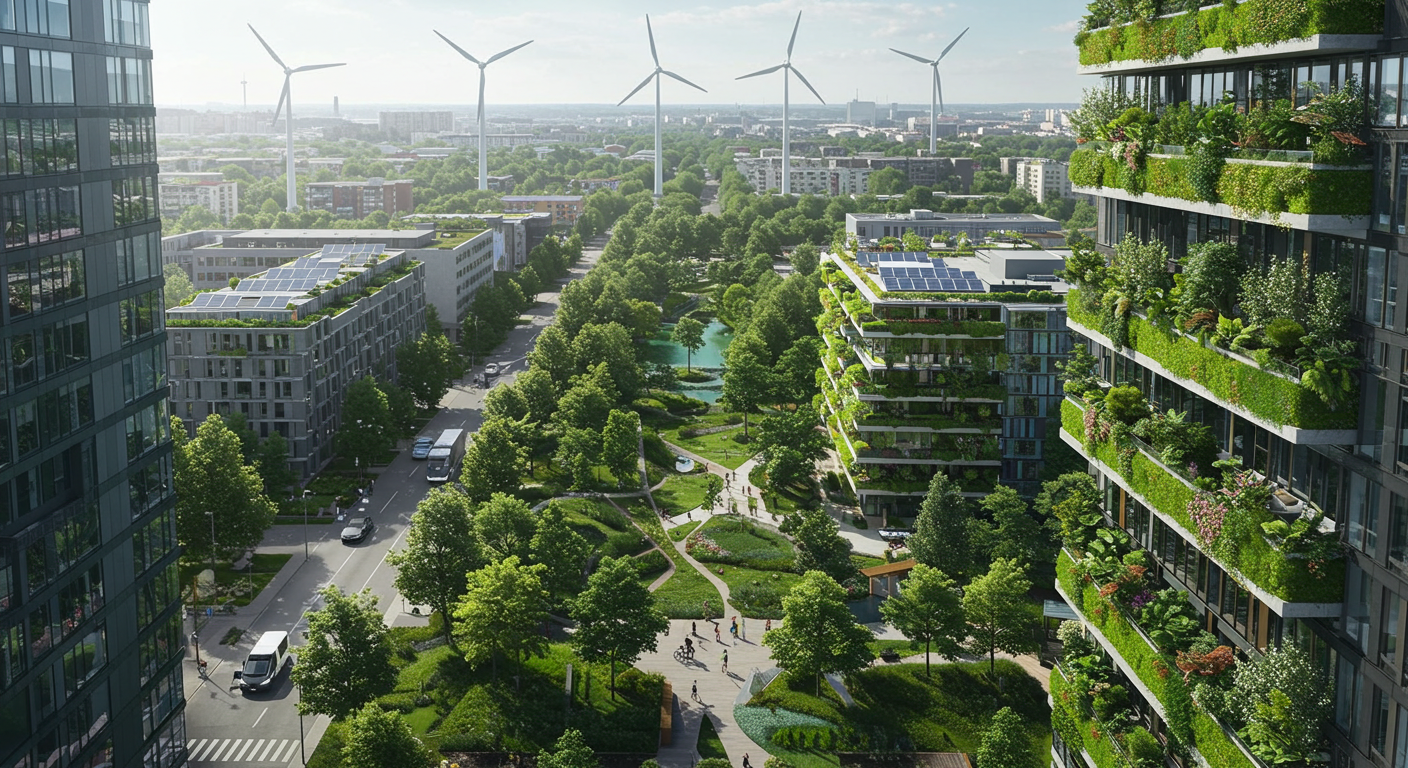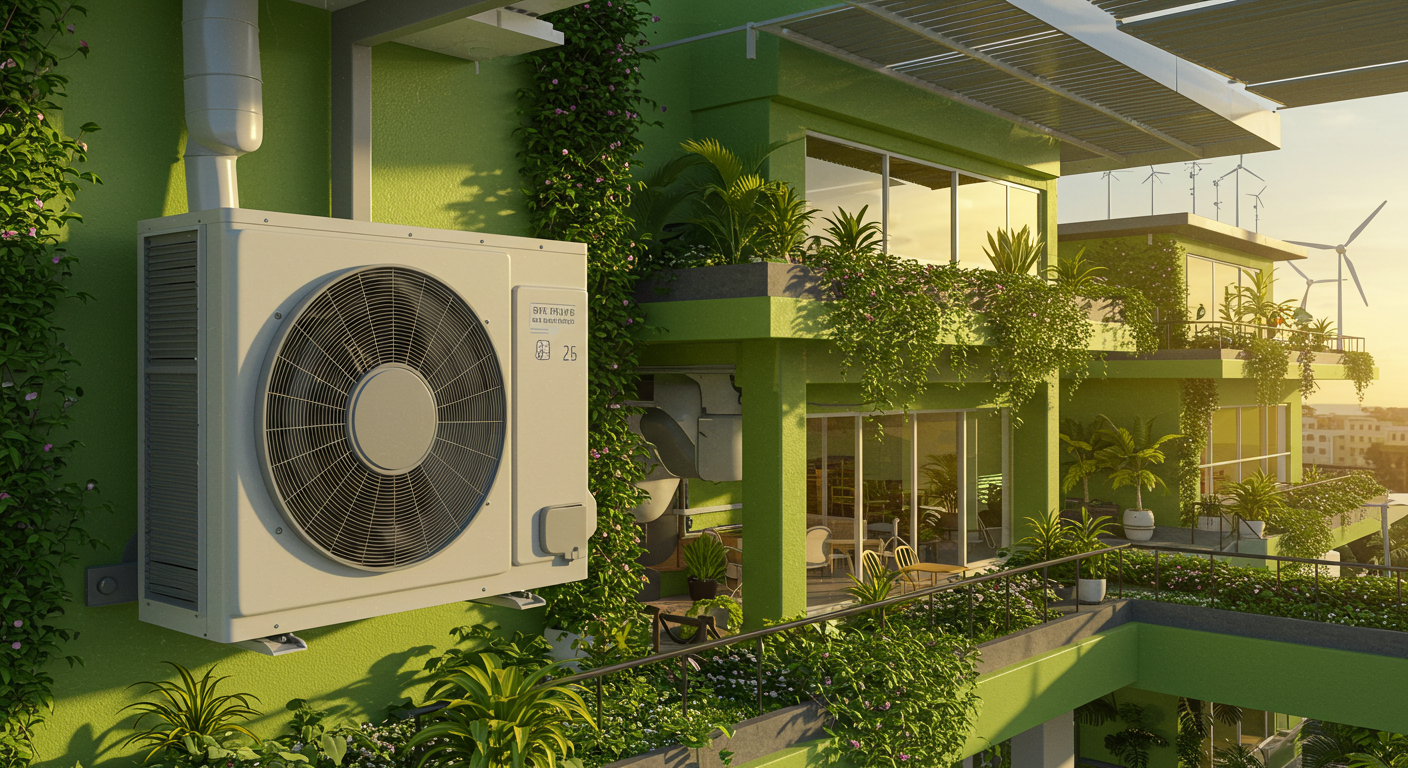
Exploring the Future: Opportunities in Solar-Integrated HVAC Systems
Hey there, HVAC enthusiasts! If you’ve been keeping an eye on the latest trends in the industry, you’ve probably noticed the increasing buzz around solar-integrated HVAC systems. As we step into 2025, it’s time to explore how these innovative systems are transforming the world of heating, ventilation, and air conditioning.
The Efficiency and Performance of Solar-Integrated HVAC Systems
Let’s dive into the heart of the matter: efficiency and performance. Did you know that solar-assisted heat pumps (SA-HP) perform best when they bask in the sun? The higher the solar irradiance, the higher the Coefficient of Performance (COP) of your heat pump. It’s like giving your HVAC system a shot of espresso!
Research shows that with the right solar collector size and a sprinkle of phase change materials (PCM), you can boost your system’s COP by a whopping 60%-70%! However, if you’re in a place with chilly winters and less sun, you might find these systems perform best in sunnier climates.
The Cost and Installation Journey
Now, let’s talk numbers. Installing a solar collection retrofit on an existing air-to-water heat pump can set you back at least $8,148, and that’s before installation costs and solar storage tanks. A single vacuum tube thermal collector costs around $1,044, while a complete solar hot water retrofit kit runs about $5,086. It’s an investment, but one with significant energy savings potential.
Market Potential and Savings
Imagine living in a sunny paradise with high heating demands. That’s where solar HVAC systems truly shine! Places like California, with climate zones boasting over 4,000 heating degree days, offer the most savings potential. Plus, integrating SA-HP with variable-speed heat pumps aligns perfectly with statewide goals for low-emissions heating.
Technological Integration: The Future is Here
Solar-powered HVAC systems aren’t just about panels. We’re talking about a whole suite of components: inverters, batteries, and smart thermostats, all working together for maximum energy efficiency. Brands like Ruud, available through Mar-Hy Distributors, are leading the charge with systems that harness solar energy to heat or cool your home.
- Boost energy efficiency with solar HVAC solutions.
- Enjoy cost savings with solar-powered air conditioning.
- Contribute to environmental benefits with hybrid solar HVAC systems.
Challenges and Future Prospects
Of course, it’s not all sunshine and rainbows. Initial costs, efficiency in varied weather, and space for solar panels can be challenges. But fear not! Technological advancements are paving the way for more affordable and efficient solutions. As we continue to move towards global sustainability goals, the future of solar-integrated HVAC systems looks bright.
In conclusion, the world of solar HVAC is filled with opportunities. Whether you’re looking to save on costs, improve energy efficiency, or contribute to a greener planet, these systems offer a promising path forward.
Ready to explore the possibilities of solar HVAC systems for your business? Contact Mar-Hy Distributors today and take the first step towards a sustainable future!
FAQs about Solar-Integrated HVAC Systems
What are the benefits of solar-powered HVAC systems?
Solar-powered HVAC systems offer numerous benefits, including reduced energy costs, increased energy efficiency, and a lower carbon footprint, contributing to environmental sustainability.
How does solar energy improve HVAC efficiency?
Solar energy enhances HVAC efficiency by providing a renewable energy source that can increase the Coefficient of Performance (COP) of heat pumps, especially in sunny climates.
Are solar HVAC systems cost-effective?
While the initial installation costs can be high, the long-term savings on energy bills make solar HVAC systems a cost-effective solution for many homeowners and businesses.
Can solar HVAC systems work in colder climates?
Although solar HVAC systems are most efficient in sunnier climates, advancements in technology are making them more viable in colder regions, especially when paired with efficient heat pumps.
What is the future of solar-integrated HVAC systems?
The future of solar-integrated HVAC systems looks promising as technology advances and costs decrease, aligning with global sustainability initiatives and increasing adoption rates.


